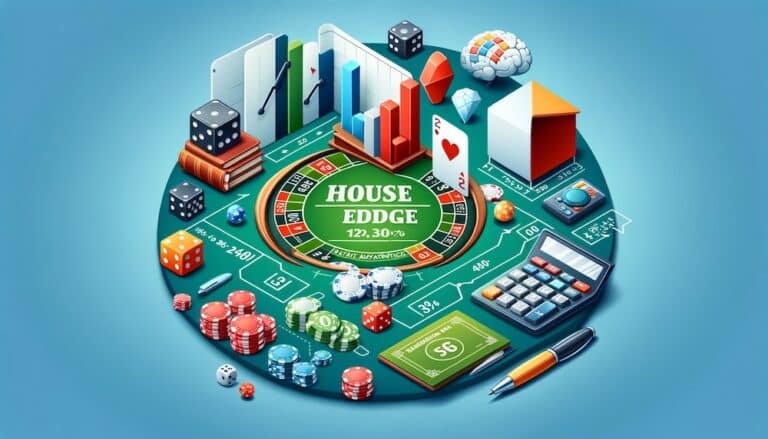One term that frequently surfaces, shaping strategies and player expectations, is the “House Edge.” This concept is pivotal to understanding the mechanics of gambling and serves as a critical factor in both game design and player decision-making. This article delves into the intricacies of the House Edge, exploring its definition, calculation, impact on gameplay, and strategies for players to minimize its effects.
What is the House Edge?
The House Edge represents the mathematical advantage that the casino has over the players in any given game. Expressed as a percentage, it quantifies the portion of each bet that the casino expects to retain over the long run. In simpler terms, the House Edge ensures that the casino will make a profit, regardless of the individual wins and losses of its patrons.
Calculating the House Edge
The calculation of the House Edge varies from game to game, depending on the rules and payouts of each. For example, in a game of European Roulette, the presence of a single zero gives the game a House Edge of 2.7%. This means that for every $100 wagered, the casino expects to make an average profit of $2.70. Slot machines, on the other hand, have varying House Edges, often ranging from 2% to 10% or more, depending on the specific machine and its settings.
The Impact of the House Edge on Gameplay
Understanding the House Edge is crucial for players, as it directly impacts their potential for winning and losing. Games with a lower House Edge, such as Blackjack or Baccarat, offer better odds for the player, making them popular choices for those looking to maximize their chances of winning. Conversely, games with a higher House Edge tend to offer larger payouts to compensate for the increased risk.
Strategies to Minimize the House Edge
While the House Edge is a fixed aspect of casino games, players can adopt strategies to minimize its impact on their bankroll:
- Choose Games Wisely: Opt for games with a lower House Edge to improve your chances of winning. Research the odds of different games and their variations before playing.
- Learn Optimal Strategies: Many games, like Blackjack, have optimal strategies that can reduce the House Edge to less than 1% if followed correctly. Learning and applying these strategies can significantly enhance your chances of winning.
- Manage Your Bankroll: Effective bankroll management can help you weather the ups and downs of casino gaming. Set limits on your losses and stick to them to avoid the detrimental effects of chasing losses.
- Take Advantage of Bonuses and Comps: Casinos often offer bonuses and comps that can offset the House Edge. Look for promotions, loyalty programs, and other perks that can extend your playtime and increase your chances of winning.
Conclusion
The House Edge is a fundamental concept in casino gaming that affects every aspect of the gambling experience. By understanding how it works and implementing strategies to mitigate its impact, players can enjoy a more informed and potentially rewarding casino experience. Remember, gambling should always be approached with caution and responsibility, with the understanding that the House Edge ensures the casino always has an advantage in the long run.

David Garato is a luminary in gaming journalism, renowned for peeling back the curtain on the gaming world with his witty and insightful commentary. A decade into weaving stories from the pixelated edges of indie games to the expansive universes of AAA titles, David’s work is a thrilling blend of analysis and adventure. When not writing, he’s live-streaming, sharing his gaming exploits with an engaged and growing audience. David doesn’t just write about games; he lives them, making him a trusted guide in the gaming community.


